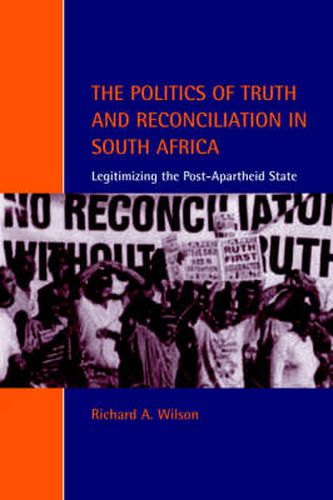Readings Newsletter
Become a Readings Member to make your shopping experience even easier.
Sign in or sign up for free!
You’re not far away from qualifying for FREE standard shipping within Australia
You’ve qualified for FREE standard shipping within Australia
The cart is loading…






The South African Truth and Reconciliation Commission (TRC) was set up to deal with the human rights violations of apartheid during the years 1960-1994. However, as Wilson shows, the TRC’s restorative justice approach to healing the nation did not always serve the needs of communities at a local level. Based on extended anthropological fieldwork, this book illustrates the impact of the TRC in urban African communities in Johannesburg. While a religious constituency largely embraced the commission’s religious-redemptive language of reconciliation, Wilson argues that the TRC had little effect on popular ideas of justice as retribution. This provocative study deepens our understanding of post-apartheid South Africa and the use of human rights discourse. It ends on a call for more cautious and realistic expectations about what human rights institutions can achieve in democratizing countries.
$9.00 standard shipping within Australia
FREE standard shipping within Australia for orders over $100.00
Express & International shipping calculated at checkout
The South African Truth and Reconciliation Commission (TRC) was set up to deal with the human rights violations of apartheid during the years 1960-1994. However, as Wilson shows, the TRC’s restorative justice approach to healing the nation did not always serve the needs of communities at a local level. Based on extended anthropological fieldwork, this book illustrates the impact of the TRC in urban African communities in Johannesburg. While a religious constituency largely embraced the commission’s religious-redemptive language of reconciliation, Wilson argues that the TRC had little effect on popular ideas of justice as retribution. This provocative study deepens our understanding of post-apartheid South Africa and the use of human rights discourse. It ends on a call for more cautious and realistic expectations about what human rights institutions can achieve in democratizing countries.